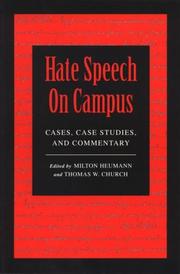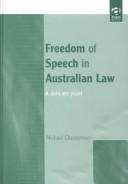| Listing 1 - 10 of 101 | << page >> |
Sort by
|

ISBN: 1555532918 1555532926 Year: 1997 Publisher: Boston (Mass.) : Northeastern university press,
Abstract | Keywords | Export | Availability | Bookmark
 Loading...
Loading...Choose an application
- Reference Manager
- EndNote
- RefWorks (Direct export to RefWorks)

ISBN: 9004649433 9042005866 Year: 1999 Publisher: Amsterdam : BRILL,
Abstract | Keywords | Export | Availability | Bookmark
 Loading...
Loading...Choose an application
- Reference Manager
- EndNote
- RefWorks (Direct export to RefWorks)
Faux Titre est une collection d'études en littérature française. Depuis cinquante ans déjà, elle offre une sélection d'essais de haute envergure, couvrant l'ensemble du domaine de la recherche littéraire, de la littérature médiévale jusqu'à l'extrême contemporain. La collection offre également une plate-forme pour de nouvelles pistes de recherche comme les études de traduction, les littératures minoritaires, les études du genre et queer, l'écologie, les sciences humaines médicales, études hémisphériques, études transatlantiques, études de réseaux et sciences sociales, ainsi que des réflexions sur les études en littérature française en tant que discipline.
Book
ISBN: 110899184X 1108998429 1108834132 1108998240 9781108991841 9781108834131 9781108994347 Year: 2022 Publisher: Cambridge ; New York, NY : Cambridge University Press,
Abstract | Keywords | Export | Availability | Bookmark
 Loading...
Loading...Choose an application
- Reference Manager
- EndNote
- RefWorks (Direct export to RefWorks)
Hate speech continues to be an issue of key social significance, yet while its lexical and discursive aspects have been widely studied, its grammatical traits have been hitherto overlooked. This book seeks to address this gap by bringing together a global team of scholars to explore the morphosyntactic features of hateful and aggressive discourse. Drawing on thirteen diverse cross-linguistic case studies, it reveals how hate is expressed in political discourse, slang, and social media, and towards a range of target groups relating to gender, sexual orientation, and ethnic identity. Based on ideas from functional and cognitive linguistics, each thematic part demonstrates how features such as morphology, word formation, pronoun use, and syntactic structures are manipulated for the purpose of expressing hostility and hate. An innovative approach to an age-old problem, this book is essential reading for researchers and students of hate speech and verbal aggression.
Hate speech. --- Grammar, Comparative and general --- Morphosyntax.
Book
ISBN: 1009357115 1009357107 1009357123 100935714X 9781009357128 9781009357142 9781009357111 9781009357104 9781009357135 Year: 2024 Publisher: Cambridge, United Kingdom ; New York, NY Cambridge University Press
Abstract | Keywords | Export | Availability | Bookmark
 Loading...
Loading...Choose an application
- Reference Manager
- EndNote
- RefWorks (Direct export to RefWorks)
No serious attempt to answer the question 'What is hate speech?' would be complete without an exploration of the outer limits of the concept(s). This book critically examines both the ordinary and legal concepts of hate speech, contrasting social media platform content policies with national and international laws. It also explores a range of controversial grey area examples of hate speech. Part I focuses on the ordinary concept and looks at hybrid attacks, selective attacks, reverse attacks, righteous attacks, indirect attacks, identity attacks, existential denials, identity denials, identity miscategorisations, and identity appropriations. Part II concentrates on the legal concept. It considers how to distinguish between hate speech and hate crime, and examines the precarious position of denialism laws in national and international law. Together, the authors draw on conceptual analysis, doctrinal analysis, linguistic analysis, critical analysis, and diachronic analysis to map the new frontiers of the concepts of hate speech.
Hate speech --- Hate crimes --- Law and legislation. --- Online hate speech --- Social media.
Book
ISBN: 0190465565 0190884940 0190465549 Year: 2018 Publisher: New York, NY : Oxford University Press,
Abstract | Keywords | Export | Availability | Bookmark
 Loading...
Loading...Choose an application
- Reference Manager
- EndNote
- RefWorks (Direct export to RefWorks)
'Hate, Politics, Law' offers a critical exploration and assessment of the basic assumptions, ideals, and agendas behind the modern fight against hate. The essays in this volume explore these issues and provide a range of explanatory and normative perspectives on the awkward relationship between hate and liberal democracy.
Hate crimes --- Hate speech --- Hate --- Law and legislation. --- Political aspects.

ISBN: 1840140526 Year: 2000 Publisher: Aldershot : Ashgate,
Abstract | Keywords | Export | Availability | Bookmark
 Loading...
Loading...Choose an application
- Reference Manager
- EndNote
- RefWorks (Direct export to RefWorks)
Book
ISBN: 9781433119484 9781433119477 Year: 2015 Publisher: New York : Peter Lang,
Abstract | Keywords | Export | Availability | Bookmark
 Loading...
Loading...Choose an application
- Reference Manager
- EndNote
- RefWorks (Direct export to RefWorks)
Hate speech --- Right-wing extremists --- Communication in politics
Book
ISBN: 1541539257 1541543912 1541552458 1803160829 Year: 2019 Publisher: Minneapolis, Minnesota : Twenty-First Century Books,
Abstract | Keywords | Export | Availability | Bookmark
 Loading...
Loading...Choose an application
- Reference Manager
- EndNote
- RefWorks (Direct export to RefWorks)
Experts have documented an explosive rise in the number of hate groups since the turn of the century, driven by anger over immigration and demographic projections showing that whites will no longer hold majority status in the United States by 2040. The rise accelerated with the elections of presidents Obama and Trump. Extremists are increasingly diffuse, moving to the web and away from organized, on-the-ground activities. What is a hate group and how does it operate? How do we legally define hate speech and hate crimes? What is the history of organizing around hate and how do we recognize and confront it? These are the salient issues readers will investigate in this overview.
Right-wing extremists. --- Hate groups. --- Hate speech. --- Hate.
Book
ISBN: 1943208395 1943208387 9781943208395 9781943208388 Year: 2022 Publisher: Amherst College Press
Abstract | Keywords | Export | Availability | Bookmark
 Loading...
Loading...Choose an application
- Reference Manager
- EndNote
- RefWorks (Direct export to RefWorks)
There have been few times in US American history when the very concept of freedom of speech--its promise and its contradictions--has been under greater scrutiny. Guided by acclaimed artist, filmmaker, and activist Amar Kanwar, the Vera List Center for Art and Politics at The New School convened a series of public seminars on freedom of speech with the participation of some of the most original thinkers and artists on the topic. Structured as an open curriculum, each seminar examined a particular aspect of freedom of speech, reflecting on and informed by recent debates around hate speech, censorship, sexism, and racism in the US and elsewhere. Studies into Darkness emerges from these seminars as a collection of newly commissioned texts, artist projects, and resources that delve into the intricacies of free speech. Providing a practical and historical guide to free speech discourse and in-depth investigations that extend far beyond the current moment, and featuring poetic responses to the crises present in contemporary culture and society around expression, this publication provocatively questions whether true communication is ever attainable.
Freedom of speech --- Hate speech --- Censorship --- Sexism --- Racism --- United States.
Book
ISBN: 1003083072 1000553515 0367537273 Year: 2021 Publisher: London, England ; New York, New York : Routledge,
Abstract | Keywords | Export | Availability | Bookmark
 Loading...
Loading...Choose an application
- Reference Manager
- EndNote
- RefWorks (Direct export to RefWorks)
Using expert interviews and focus groups, this book investigates the theoretical and practical intersection of misinformation and social media hate in contemporary societies. Social Media and Hate argues that these phenomena, and the extreme violence and discrimination they initiate against targeted groups, are connected to the socio-political contexts, values and behaviours of users of social media platforms such as Facebook, TikTok, ShareChat, Instagram and WhatsApp. The argument moves from a theoretical discussion of the practices and consequences of sectarian hatred, through a methodological evaluation of quantitative and qualitative studies on this topic, to four qualitative case studies of social media hate, and its effects on groups, individuals and wider politics in India, Brazil, Myanmar and the UK. The technical, ideological and networked similarities and connections between social media hate against people of African and Asian descent, indigenous communities, Muslims, Dalits, dissenters, feminists, LGBTQIA communities, Rohingya and immigrants across the four contexts is highlighted, stressing the need for an equally systematic political response.This is an insightful text for scholars and academics in the fields of Cultural Studies, Community Psychology, Education, Journalism, Media and Communication Studies, Political Science, Social Anthropology, Social Psychology, and Sociology.
Language Arts & Disciplines / Journalism --- Language arts --- Communication arts --- Communication --- Study and teaching --- Online hate speech. --- Social media and society. --- Social media --- Religious aspects. --- Society and social media --- Internet hate speech --- Hate speech --- Social aspects
| Listing 1 - 10 of 101 | << page >> |
Sort by
|

 Search
Search Feedback
Feedback About UniCat
About UniCat  Help
Help News
News